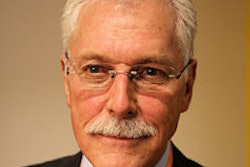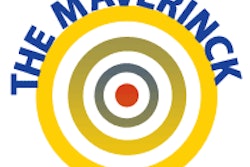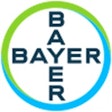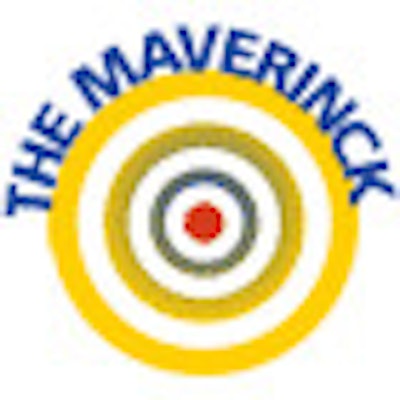
Editor's note: In his regular column, Europe's very own maverick radiologist, Dr. Peter Rinck, addresses the latest controversial topic. Find out now what's on his mind.
I have a new hobby. Instead of playing solitaire on my computer, I type in, or copy and paste, fragments of my old scientific papers to check who has propagated my writings under his name -- or perhaps hers. I didn't turn to any specially developed software, but simply to the advanced search on Google.
Some of the results are flabbergasting. I've had a lot of fun finding out who has used and abused 10- or 20-year-old articles of mine in learned journals. The academic -- or, rather, para-academic -- life at some universities is thriving: Why plagiarize sentences if you can plagiarize entire paragraphs?
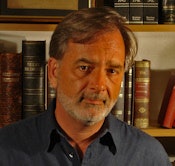 |
| Dr. Peter Rinck, PhD, Maître de Conférence and visiting professor of medical imaging at the University of Mons, Belgium. |
After several days I experimented with former magazine columns. This time it was not sentences or paragraphs -- I found whole articles reprinted by esoteric bloggers, scientific societies, and greedy publishers. I uncovered them in journals of psychiatry and laboratory medicine, even in a magazine for general practitioners. When I approached the publisher of some of these journals, I was told it was the fault of their computers and software; or in other words: "It wasn't me who shot the man. It was my gun." Suing them is useless, they are too slippery.
In my columns in "not-learned" journals, or on the Web, I try to paraphrase ideas or arguments I have heard or read, but whose author I cannot remember. Otherwise I cite with quotations marks at the beginning and the end of the sentence. Editors don't like columns with references, but I like my columns like that.
The recent cause célèbre in plagiarism catapulted the German minister of defense out of his office. Karl-Theodor von Guttenberg was forced to resign after it surfaced that he had copied major parts of his doctoral thesis from other publications, not even changing verbs or using synonyms -- and he left the spelling mistakes. Many people see him as a political victim, whereas I really appreciate the scandal. He sold honesty and decency as part of his political program and should have set a good example; instead, the people made an example of him. Perhaps his -- most likely preliminary -- demise will help to clean up universities to a certain extent.
Plagiarism is theft and academically not acceptable. In many Western countries, copying entire paragraphs, articles, or books is a criminal offense: copyright infringement. Yet, who cares if a nobody steals somebody else's intellectual work? This time, however, it was Baron von und zu Guttenberg, the pretender to the chancellorship of the Federal Republic of Germany. You will find a nice summary of the case in a New York Times article.1 This article also explains why booking a flight on Lufthansa is time-consuming: When giving your name, you not only have to declare whether you are Mr. or Mrs., but also whether you are Mr. or Mrs. Dr., Mr. or Mrs. Prof., or Mr. or Mrs. Prof. Dr. -- I am used to Lufthansa's extravaganza and always found it entertaining. I change titles according to my prevailing mood. In case I had to book for someone else, I usually turned them into professors.
Against this background, we have to see the baron's case of plagiarism in a social context. However, it doesn't excuse that he has hidden several hundred unquoted citations in his 475-page thesis for a doctorate in law.
Once, when my former boss, Paul Lauterbur, PhD, returned to New York from a visit to Austria, I asked him whom he had met in Vienna. He responded. "I don't really know. I was introduced to a long row of dignitaries: 'Dr. Wiener Schnitzel,' 'Dr. Wiener Schnitzel,' 'Dr. Wiener Schnitzel,' 'Dr. Wiener Schnitzel,' and 'Prof. Dr. Wiener Schnitzel.'" At that time I found the story simply funny. Today I have realized its importance and see it describing part of the culture and the social life in certain countries. As Europeans in general smile about men wearing cowboy hats in downtown Tucson, AZ, Spaniards, Swedes, and Brits find the German and Austrian run for academic titles (not degrees!) funny.
For a number of professions, a doctor title is a social necessity in these and other countries of the region. The scientific background of such a doctorate has been lost a long time ago. It's not proof of scientific and research capabilities. Content, in many instances, is of minor importance. Plagiarism is a minor sin.
A Scandinavian "Dr. Med." is a real scientific medical degree with several years of dedicated work behind it, whereas a German or Austrian "Dr. med." or any other doctor title is in 90% of all cases "doorplate" or "letterhead" research, according to Ulrike Beisiegel, president of the scientific commission of the German Council of Science and Humanities, an advisory body to the German government. A German doctorate in medicine equals a master thesis elsewhere.2
Handing out the Dr. med., or a similar title, in law or another soft science without great parascientific ado after the final university examination would solve the problem; and people with a Dr. scient. med. or similar easily distinguishable scientific degree would be recognizable as someone with a truly scientific background -- and commonly lower salary. Nobody would lose face.
It's easy to copy and paste from the Internet. But it's also easy to copy and detect on the Internet. In other words: The net strikes back.
Plagiarism is a topic to fill an encyclopedia. I'll write about it again soon -- about plagiarism in scientific papers.
References
1. Bönisch J. Dr. med. Dünnbrettbohrer. Süddeutsche Zeitung. 8 July 2009. http://www.sueddeutsche.de/karriere/medizinstudium-und-promotion-dr-med-duennbrettbohrer-1.120817.
2. Kimmelman M. In Germany, uproar over a doctoral thesis. New York Times. March 14, 2011. http://www.nytimes.com/2011/03/15/books/merkels-possible-successor-resigns-in-plagiarism-scandal.html.
The comments and observations expressed herein do not necessarily reflect the opinions of AuntMinnieEurope.com, nor should they be construed as an endorsement or admonishment of any particular vendor, analyst, industry consultant, or consulting group.





